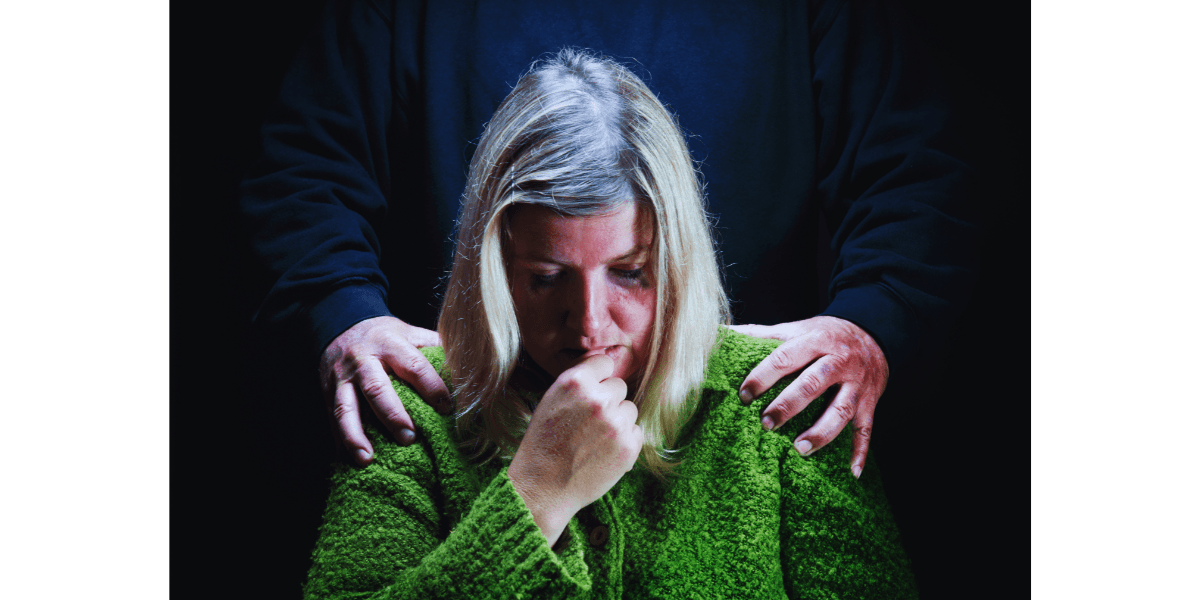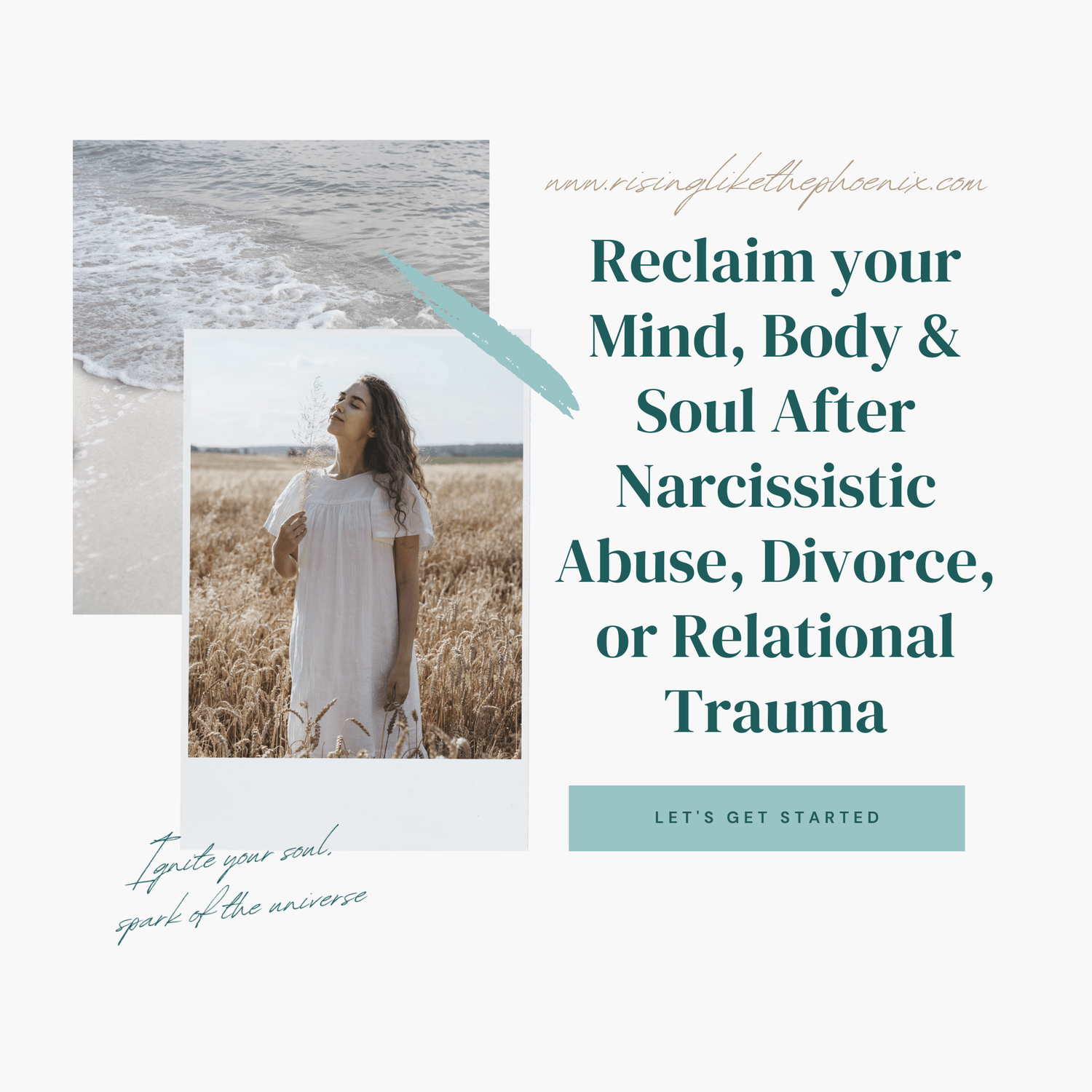How to Recognize the Hidden Signs of Narcissistic Abuse
Abuse doesn’t always come with bruises or loud shouting matches. Sometimes it creeps in quietly, hidden behind sweet words, big promises, or moments of charm. Narcissistic abuse is often like that, subtle, confusing, and difficult to name until you’re knee-deep in the fog. Many survivors describe it as a slow unraveling of their confidence, their sense of reality, and even their identity.
If you’ve ever found yourself questioning whether you’re “too sensitive,” second-guessing your memory, or feeling like you’ve lost pieces of yourself in a relationship, you’re not alone. These are often signs of psychological and emotional abuse, and learning to spot them is the first step toward reclaiming your peace.
This guide is here to help you recognize the hidden signs of narcissistic abuse, so you can begin to protect your energy, rebuild your self-worth, and move toward healing.
What Makes Narcissistic Abuse So Hard to Spot?
At the beginning, many narcissistic relationships don’t look toxic at all. In fact, they often start with fireworks, what experts call “love bombing.” You may be showered with affection, grand gestures, or endless compliments. The narcissist builds a pedestal, placing you at the very top, only to later pull it out from under you.
This cycle of idealization and devaluation keeps you hooked. You may find yourself clinging to the memory of those early days, trying desperately to get back to the person you first met. But the truth is, that person was an act, a carefully crafted mask.
What makes it even trickier is the gaslighting. Narcissists are experts at twisting reality, making you doubt what you saw, heard, or felt. Over time, you may start believing their version of events, which is exactly what keeps you in their control.
The Hidden Red Flags of Narcissistic Abuse
The signs aren’t always obvious. Often, they show up as small, repeated behaviors that chip away at your spirit. Here are some of the most common red flags:
Subtle shifts in communication:
- Jokes that cut you down, then are brushed off with “You’re too sensitive.”
- The silent treatment when you don’t comply with their wishes.
- Withholding affection as punishment.

Emotional manipulation tactics:
- Guilt-tripping you for setting boundaries.
- Triangulation: bringing in other people to stir jealousy or competition.
- Projection: accusing you of the very behaviors they’re guilty of.
Gaslighting and control:
- Insisting events didn’t happen the way you remember.
- Telling you that your feelings are wrong, irrational, or crazy.
- Convincing you to question your intuition until you no longer trust yourself.
Loss of self-worth:
- Repeated criticism, no matter what you do.
- A slow erosion of your confidence and joy.
- Feeling like nothing you do is ever enough.
The Emotional and Psychological Impact
Living under this kind of manipulation takes a toll. You may find yourself constantly anxious, hyperaware of their moods, or “walking on eggshells.” Over time, you might start to isolate, pulling away from friends or family because it feels easier than dealing with their judgment or because the narcissist actively discourages those connections.
Another hidden effect? You lose your own voice. Survivors often say they no longer recognize themselves. Hobbies, passions, and even personal opinions fade into the background, replaced by the constant effort of keeping the narcissist happy.
5 Steps to Reclaim Your Life
A practical guide to reclaiming your confidence, setting boundaries, and moving forward—without second-guessing yourself.
Why Early Recognition Matters
The sooner you spot these patterns, the sooner you can begin to protect yourself. Narcissistic abuse thrives in secrecy and self-doubt. The longer you’re caught in the cycle, the harder it can be to untangle, though recovery is always possible.
Recognizing the signs doesn’t mean you have to leave overnight; sometimes that’s not safe or practical. But even acknowledging what’s happening is powerful. It means you’re reclaiming clarity, and clarity is the first step toward freedom.
Taking Your First Steps Toward Healing
If any of this feels familiar, please hear this: it is not your fault. Narcissists are skilled manipulators, and anyone, no matter how strong or intelligent, can be caught in their web.
Some gentle first steps:
- Write it down. Journaling what happened, in your own words, helps ground you in your truth.
- Reach out. Whether it’s a trusted friend, a therapist, or a support group, connection breaks the cycle of isolation.
- Educate yourself. Learning the language of abuse, gaslighting, projection, and trauma bonding puts the pieces together.
- Nurture your self-worth. Small daily practices like affirmations, self-care rituals, or reconnecting with hobbies remind you that you matter.
Healing doesn’t happen overnight. But each step you take chips away at the grip of control and brings you back to yourself.

Final Thoughts
Recognizing the hidden signs of narcissistic abuse can feel overwhelming, but it’s also a moment of awakening. Once you begin to see the patterns clearly, you can no longer unsee them, and that awareness is the beginning of freedom.
You deserve relationships rooted in respect, kindness, and authenticity. Spotting manipulation is not about being paranoid; it’s about protecting your peace. And as you move forward, know this: you are not alone. Countless women have walked this road before you, and healing is always possible.
Frequently Asked Questions
Conflict is natural in any relationship, but in healthy dynamics, both partners work toward resolution. Narcissistic abuse is about control, not compromise. The cycle repeats without change or accountability.
Absolutely. Parents, siblings, or even adult children can exhibit narcissistic patterns. The dynamics are often just as damaging, especially when they’ve been present since childhood.
If you find yourself constantly doubting your memory, apologizing for things you didn’t do, or feeling “crazy” after conversations, gaslighting may be at play.
Start by documenting your experiences and reaching out for support. A therapist familiar with trauma and narcissistic dynamics can provide guidance. Safety planning is essential if you’re considering leaving.
Diane’s upcoming course A Girlfriend’s Guide to the Other Side dives deeper into practical boundary-setting strategies and offers exercises to help you strengthen this vital skill.
If you want to be notified of it's launch early next year register for our Rise Weekly Newsletter where Diane will keep you informed weekly of it's progress and other suggestions toward your healing journey.
Remember you are not alone

Hi, I’m Diane – and I’m so glad you’re here
Diane is the author of A Girlfriend’s Guide to the Other Side: Reclaim Your Mind, Body, and Soul After Narcissistic Abuse, Divorce, or Relational Trauma.
After surviving the wreckage of a controlling relationship that stripped her identity, she turned her pain into purpose. Through her book, course, and community, Diane now guides women on the journey of rebuilding self-worth, setting healthy boundaries, and reclaiming their lives.
Her mission is simple: to remind every woman that healing is possible, and that your future can be brighter than your past.
Categories
Rise Weekly Newsletter
Because healing isn’t just about surviving, it’s about rising. Rise Weekly delivers empowering insights, gentle reminders, and soulful tools to help you reclaim your strength, set powerful boundaries, and rebuild a life that feels like you. If you're ready to rise above trauma and step into your next chapter with clarity and courage - this is your space.
Created by © Suzanne Startari with systeme.io





